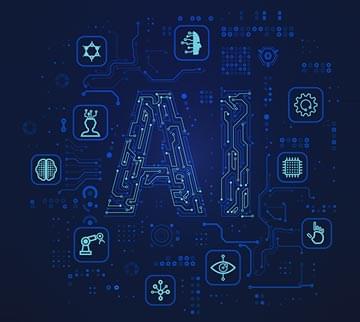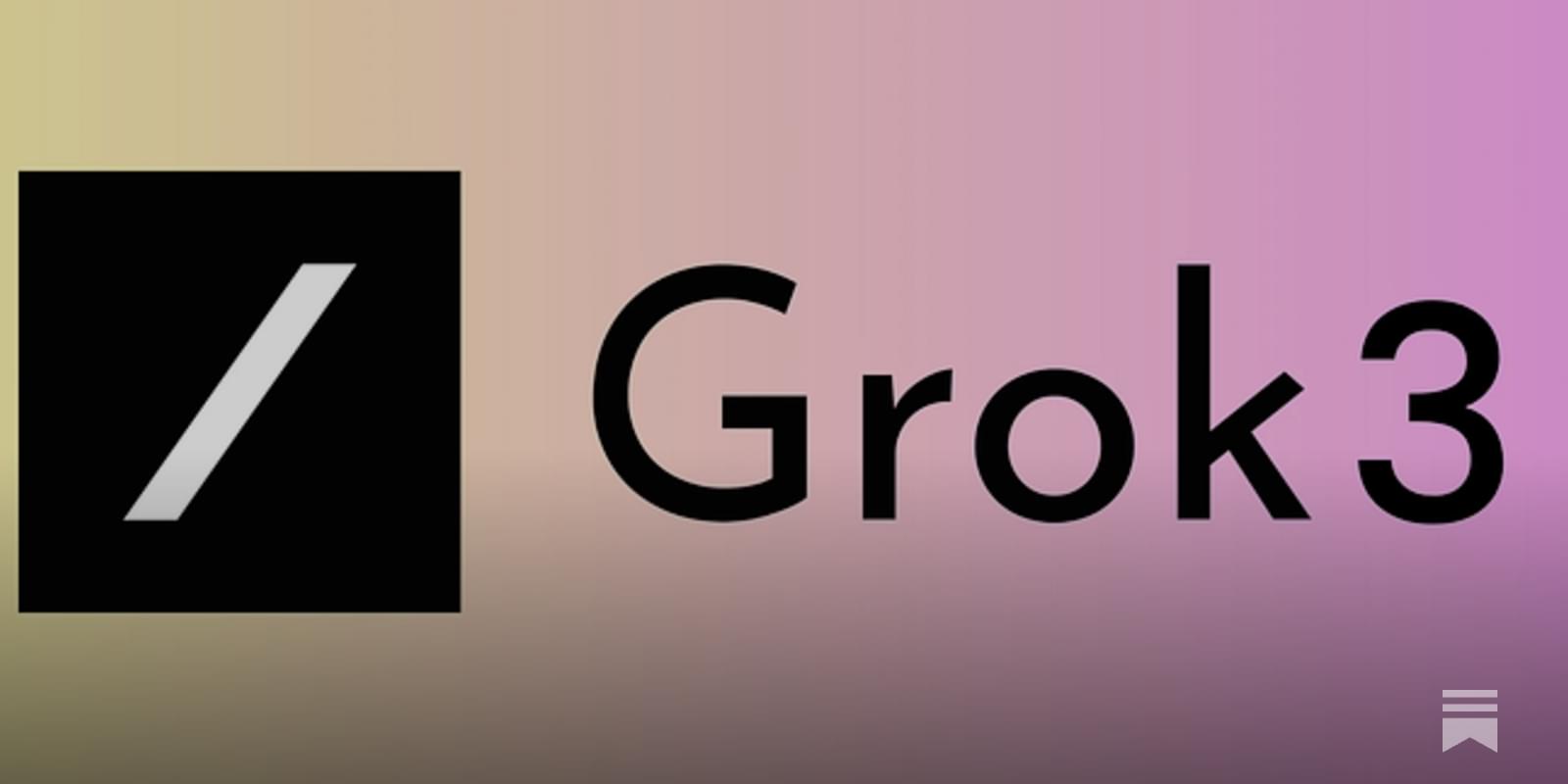“Disembodied Brains: Understanding our Intuitions on Human-Animal Neuro-Chimeras and Human Brain Organoids” by John H. Evans Book Link: https://amzn.to/40SSifF “Introduction to Organoid Intelligence: Lecture Notes on Computer Science” by Daniel Szelogowski Book Link: https://amzn.to/3Eqzf4C “The Emerging Field of Human Neural Organoids, Transplants, and Chimeras: Science, Ethics, and Governance” by The National Academy of Sciences, Engineering and Medicine Book Link: https://amzn.to/4hLR1Oe (Affiliate links: If you use these links to buy something, I may earn a commission at no extra cost to you.) Playlist: • Two AI’s Discuss: The Quantum Physics… The hosts explore the ethical and scientific implications of brain organoids and synthetic biological intelligence (SBI). Several sources discuss the potential for consciousness and sentience in these systems, prompting debate on their moral status and the need for ethical guidelines in research. A key focus is determining at what point, if any, brain organoids or SBI merit moral consideration similar to that afforded to humans or animals, influencing research limitations and regulations. The texts also examine the use of brain organoids as a replacement for animal testing in research, highlighting the potential benefits and challenges of this approach. Finally, the development of “Organoid Intelligence” (OI), combining organoids with AI, is presented as a promising but ethically complex frontier in biocomputing. Our sources discuss several types of brain organoids, which are 3D tissue cultures derived from human pluripotent stem cells (hPSCs) that self-organize to model features of the developing human brain. Here’s a brief overview: • Cerebral Organoids: This term is often used interchangeably with “brain organoids”. They are designed to model the human neocortex and can exhibit complex brain activity. These organoids can replicate the development of the brain in-vitro up to the mid-fetal period. • Cortical Organoids: These are a type of brain organoid specifically intended to model the human neocortex. They are formed of a single type of tissue and represent one important brain region. They have been shown to develop nerve tracts with functional output. • Whole-brain Organoids: These organoids are not developed with a specific focus, like the forebrain or cerebellum. They show electrical activity very similar to that of preterm infant brains. • Region-specific Organoids: These are designed to model specific regions of the brain such as the forebrain, midbrain, or hypothalamus. For example, midbrain-specific organoids can contain functional dopaminergic and neuromelanin-producing neurons. • Optic Vesicle-containing Brain Organoids (OVB-organoids): These organoids develop bilateral optic vesicles, which are light sensitive, and contain cellular components of a developing optic vesicle, including primitive corneal epithelial and lens-like cells, retinal pigment epithelia, retinal progenitor cells, axon-like projections, and electrically active neuronal networks. • Brain Assembloids: These are created when organoids from different parts of the brain are placed next to each other, forming links. • Brainspheres/Cortical Spheroids: These are simpler models that primarily resemble the developing in-vivo human prenatal brain, and are particularly useful for studying the cortex. Unlike brain organoids, they do not typically represent multiple brain regions. • Mini-brains: This term has been debunked in favor of the more accurate “brain organoid”. These various types of brain organoids offer diverse models for studying brain development, function, and disease. Researchers are also working to improve these models by incorporating features like vascularization and sensory input. #BrainOrganoids #organoid #Bioethics #OrganoidIntelligence #WetwareComputing #Sentience #ArtificialConsciousness #Neuroethics #AI #Biocomputing #NeuralNetworks #ConsciousnessResearch #PrecautionaryPrinciple #AnimalTestingAlternatives #ResearchEthics #EmergingTechnology #skeptic #podcast #synopsis #books #bookreview #ai #artificialintelligence #booktube #aigenerated #documentary #alternativeviews #aideepdive #science #hiddenhistory #futurism #videoessay #ethics
Category: governance – Page 3

New Report Explains Why CASB Solutions Fail to Address Shadow SaaS and How to Fix It
Whether it’s CRMs, project management tools, payment processors, or lead management tools — your workforce is using SaaS applications by the pound. Organizations often rely on traditional CASB solutions for protecting against malicious access and data exfiltration, but these fall short for protecting against shadow SaaS, data damage, and more.
A new report, Understanding SaaS Security Risks: Why CASB Solutions Fail to Cover ‘Shadow’ SaaS and SaaS Governance, highlighting the pressing security challenges faced by enterprises using SaaS applications. The research underscores the growing inefficacy of traditional CASB solutions and introduces a revolutionary browser-based approach to SaaS security that ensures full visibility and real-time protection against threats.
Below, we bring the main highlights of the report. Read the full report here.
AI Is Evolving FASTER Than Ever The SINGULARITY Is Close!
Artificial Intelligence is evolving rapidly, bringing us closer to the Singularity—a future where AI surpasses human intelligence. This shift could transform every aspect of life, from jobs to technology, creating both exciting possibilities and significant risks. As AI continues to advance at an unprecedented pace, understanding its impact on society is more crucial than ever.
🔍 Key Topics Covered:
The rapid evolution of AI and its connection to the looming Singularity, where machines may surpass human intelligence.
How AI could reshape industries, jobs, and even human life as we know it.
The potential risks of uncontrolled AI growth, including the rise of misinformation, biased outcomes, and the threat of AI-designed chemical weapons.
The need for a global governance framework to regulate and monitor AI advancements.
The ethical and philosophical questions surrounding AI’s role in society, including its impact on human consciousness and labor.
🎥 What You’ll Learn:
The rapid advancement of artificial intelligence and its potential to reach the Singularity sooner than expected.
How AI systems like neural networks and symbolic systems impact modern technology and the dangers they pose when left unchecked.
The role AI could play in jobs, governance, and the potential for global cooperation to ensure safe AI development.
Insight into real-world concerns such as disinformation, biased AI systems, and even the possibility of AI leading to catastrophic societal changes.
📊 Why This Matters:
These developments highlight the critical need for responsible AI governance as the technology progresses toward potentially surpassing human intelligence. Understanding the rapid growth of AI and its implications helps us prepare for the future, where machines could fundamentally change society. Whether you’re interested in technology, philosophy, or the future of work, this content offers an in-depth look at the powerful impact AI will have on the world.
*DISCLAIMER*:
The content presented is for informational and entertainment purposes, offering insights into the future of AI based on current trends and technological research. The creators are not AI experts or legal professionals, and the information should not be taken as professional advice. Viewer discretion is advised due to the speculative nature of the topics discussed. The views expressed are those of the content creator and do not necessarily represent any affiliated individuals or organizations.
#ai.

A Roadmap for AI Governance: Lessons from G20 National Strategies
The rapid evolution of artificial intelligence (AI) is poised to create societal transformations. Indeed, AI is already emerging as a factor in geopolitics, with malicious non-state actors exploiting its capabilities to spread misinformation and potentially develop autonomous weapons. To be sure, not all countries are equal in AI, and bridging the “AI divide” between the Global North and South is vital to ensuring equal representation while addressing regulatory concerns and the equitable distribution of benefits that can be derived from the technology.
Most G20 members have established comprehensive national AI strategies, notably technology giants like the United States, United Kingdom, China, and countries of the European Union. Global South nations such as Brazil, Argentina, and India, despite economic constraints, are demonstrating progress in leveraging AI in areas like social services and agriculture. Future strategies must anticipate emerging threats like Generative AI (GenAI) and Quantum AI, prioritising responsible governance to mitigate biases, inequalities, and cybersecurity risks.
Why a global federation might be needed to manage AI
Rufo Guerreschi.
https://www.linkedin.com/in/rufoguerreschi.
Coalition for a Baruch Plan for AI
https://www.cbpai.org/
0:00 Intro.
0:21 Rufo Guerreschi.
0:28 Contents.
0:41 Part 1: Why we have a governance problem.
1:18 From e-democracy to cybersecurity.
2:42 Snowden showed that international standards were needed.
3:55 Taking the needs of intelligence agencies into account.
4:24 ChatGPT was a wake up moment for privacy.
5:08 Living in Geneva to interface with states.
5:57 Decision making is high up in government.
6:26 Coalition for a Baruch plan for AI
7:12 Parallels to organizations to manage nuclear safety.
8:11 Hidden coordination between intelligence agencies.
8:57 Intergovernmental treaties are not tight.
10:19 The original Baruch plan in 1946
11:28 Why the original Baruch plan did not succeed.
12:27 We almost had a different international structure.
12:54 A global monopoly on violence.
14:04 Could expand to other weapons.
14:39 AI is a second opportunity for global governance.
15:19 After Soviet tests, there was no secret to keep.
16:22 Proliferation risk of AI tech is much greater?
17:44 Scale and timeline of AI risk.
19:04 Capabilities of security agencies.
20:02 Internal capabilities of leading AI labs.
20:58 Governments care about impactful technologies.
22:06 Government compute, risk, other capabilities.
23:05 Are domestic labs outside their jurisdiction?
23:41 What are the timelines where change is required?
24:54 Scientists, Musk, Amodei.
26:24 Recursive self improvement and loss of control.
27:22 A grand gamble, the rosy perspective of CEOs.
28:20 CEOs can’t really say anything else.
28:59 Altman, Trump, Softbank pursuing superintelligence.
30:01 Superintelligence is clearly defined by Nick Bostrom.
30:52 Explain to people what “superintelligence” means.
31:32 Jobs created by Stargate project?
32:14 Will centralize power.
33:33 Sharing of the benefits needs to be ensured.
34:26 We are running out of time.
35:27 Conditional treaty idea.
36:34 Part 2: We can do this without a global dictatorship.
36:44 Dictatorship concerns are very reasonable.
37:19 Global power is already highly concentrated.
38:13 We are already in a surveillance world.
39:18 Affects influential people especially.
40:13 Surveillance is largely unaccountable.
41:35 Why did this machinery of surveillance evolve?
42:34 Shadow activities.
43:37 Choice of safety vs liberty (privacy)
44:26 How can this dichotomy be rephrased?
45:23 Revisit supply chains and lawful access.
46:37 Why the government broke all security at all levels.
47:17 The encryption wars and export controls.
48:16 Front door mechanism replaced by back door.
49:21 The world we could live in.
50:03 What would responding to requests look like?
50:50 Apple may be leaving “bug doors” intentionally.
52:23 Apple under same constraints as government.
52:51 There are backdoors everywhere.
53:45 China and the US need to both trust AI tech.
55:10 Technical debt of past unsolved problems.
55:53 Actually a governance debt (social-technical)
56:38 Provably safe or guaranteed safe AI
57:19 Requirement: Governance plus lawful access.
58:46 Tor, Signal, etc are often wishful thinking.
59:26 Can restructure incentives.
59:51 Restrict proliferation without dragnet?
1:00:36 Physical plus focused surveillance.
1:02:21 Dragnet surveillance since the telegraph.
1:03:07 We have to build a digital dog.
1:04:14 The dream of cyber libertarians.
1:04:54 Is the government out to get you?
1:05:55 Targeted surveillance is more important.
1:06:57 A proper warrant process leveraging citizens.
1:08:43 Just like procedures for elections.
1:09:41 Use democratic system during chip fabrication.
1:10:49 How democracy can help with technical challenges.
1:11:31 Current world: anarchy between countries.
1:12:25 Only those with the most guns and money rule.
1:13:19 Everyone needing to spend a lot on military.
1:14:04 AI also engages states in a race.
1:15:16 Anarchy is not a given: US example.
1:16:05 The forming of the United States.
1:17:24 This federacy model could apply to AI
1:18:03 Same idea was even proposed by Sam Altman.
1:18:54 How can we maximize the chances of success?
1:19:46 Part 3: How to actually form international treaties.
1:20:09 Calling for a world government scares people.
1:21:17 Genuine risk of global dictatorship.
1:21:45 We need a world /federal/ democratic government.
1:23:02 Why people are not outspoken.
1:24:12 Isn’t it hard to get everyone on one page?
1:25:20 Moving from anarchy to a social contract.
1:26:11 Many states have very little sovereignty.
1:26:53 Different religions didn’t prevent common ground.
1:28:16 China and US political systems similar.
1:30:14 Coming together, values could be better.
1:31:47 Critical mass of states.
1:32:19 The Philadelphia convention example.
1:32:44 Start with say seven states.
1:33:48 Date of the US constitutional convention.
1:34:42 US and China both invited but only together.
1:35:43 Funding will make a big difference.
1:38:36 Lobbying to US and China.
1:38:49 Conclusion.
1:39:33 Outro
Taking AI Welfare Seriously
In this interview Jeff Sebo discusses the ethical implications of artificial intelligence and why we must take the possibility of AI sentience seriously now. He explores challenges in measuring moral significance, the risks of dismissing AI as mere tools, and strategies to mitigate suffering in artificial systems. Drawing on themes from the paper ‘Taking AI Welfare Seriously’ and his up and coming book ‘The Moral Circle’, Sebo examines how to detect markers of sentience in AI systems, and what to do about it. We explore ethical considerations through the lens of population ethics, AI governance (especially important in an AI arms race), and discuss indirect approaches detecting sentience, as well as AI aiding in human welfare. This rigorous conversation probes the foundations of consciousness, moral relevance, and the future of ethical AI design.
Paper ‘Taking AI Welfare Seriously’: https://eleosai.org/papers/20241030_T… — The Moral Circle by Jeff Sebo: https://www.amazon.com.au/Moral-Circl?tag=lifeboatfound-20?tag=lifeboatfound-20… Jeff’s Website: https://jeffsebo.net/ Eleos AI: https://eleosai.org/ Chapters: 00:00 Intro 01:40 Implications of failing to take AI welfare seriously 04:43 Engaging the disengaged 08:18 How Blake Lemoine’s ‘disclosure’ influenced public discourse 12:45 Will people take AI sentience seriously if it is seen tools or commodities? 16:19 Importance, neglectedness and tractability (INT) 20:40 Tractability: Difficulties in measuring moral significance — i.e. by aggregate brain mass 22:25 Population ethics and the repugnant conclusion 25:16 Pascal’s mugging: low probabilities of infinite or astronomically large costs and rewards 31:21 Distinguishing real high stakes causes from infinite utility scams 33:45 The nature of consciousness, and what to measure in looking for moral significance in AI 39:35 Varieties of views on what’s important. Computational functionalism 44:34 AI arms race dynamics and the need for governance 48:57 Indirect approaches to achieving ideal solutions — Indirect normativity 51:38 The marker method — looking for morally relevant behavioral & anatomical markers in AI 56:39 What to do about suffering in AI? 1:00:20 Building in fault tolerance to noxious experience into AI systems — reverse wireheading 1:05:15 Will AI be more friendly if it has sentience? 1:08:47 Book: The Moral Circle by Jeff Sebo 1:09:46 What kind of world could be achieved 1:12:44 Homeostasis, self-regulation and self-governance in sentient AI systems 1:16:30 AI to help humans improve mood and quality of experience 1:18:48 How to find out more about Jeff Sebo’s research 1:19:12 How to get involved Many thanks for tuning in! Please support SciFuture by subscribing and sharing! Have any ideas about people to interview? Want to be notified about future events? Any comments about the STF series? Please fill out this form: https://docs.google.com/forms/d/1mr9P… Kind regards, Adam Ford
- Science, Technology & the Future — #SciFuture — http://scifuture.org
Book — The Moral Circle by Jeff Sebo: https://www.amazon.com.au/Moral-Circl?tag=lifeboatfound-20?tag=lifeboatfound-20…
Jeff’s Website: https://jeffsebo.net/
Eleos AI: https://eleosai.org/
Chapters:

Viva City Fountainside Chat with Robin Hanson
Hey everyone! Robin Hanson will be speaking on Thursday about his galaxy brain ideas on better incentive models for longevity. Plus his unique takes on prediction markets and long-term thinking. [ https://lu.ma/wzuwk1lp](https://lu.ma/wzuwk1lp)
Join us for a groundbreaking discussion with economist Robin Hanson on the future of longevity economics and city governance!

Grok 3 Is Now The Most Powerful Artificial Intelligence Model, And You Can Try It Free
In today’s AI news, Elon Musk’s AI company, xAI, has officially launched its latest flagship AI model, Grok 3. Released late on February 17, 2025, Grok 3 introduces significant advancements over its predecessor, Grok 2, and aims to compete with leading AI models such as OpenAI’s GPT-4o and Google’s Gemini.
In other advancements, Replit has transformed non-technical employees at Zillow into software developers. The real estate giant now routes over 100,000 home shoppers to agents using applications built by team members who had never written code before. This breakthrough stems from Replit’s new partnership with Anthropic and Google Cloud, which has enabled over 100,000 applications on Google Cloud Run.
Then, Wu Yonghui, a prestigious “Google Fellow” who worked at the US tech giant for 17 years, recently joined TikTok owner ByteDance to lead foundational research on artificial intelligence (AI), as the firm seeks to “explore the upper limit of intelligence”. Wu now works at ByteDance’s Seed department, which the Beijing-based company started in early 2023.
Meanwhile, large companies are not adopting AI as quickly as start-ups, AWS managing director Tanuja Randery says. The gap is leading to a “two-tier” AI economy as startups outpace corporations. Citing a new report from AWS, Randery said that European startups had integrated AI at pace over the last year while larger enterprises in the region were falling behind.
In videos, join Sara Bacha from Converge Technology Solutions as she delves into how GraphRAG outperforms traditional RAG by leveraging knowledge graphs and LLM to enhance data relationships and accuracy. Learn the benefits in development, production, and governance, making maintenance easier with better explainability and traceability.
Then, join 20VC host Harry Stebbings while he speaks with Jonathan Ross is the Founder & CEO of Groq, the creator of the world’s first Language Processing Unit (LPUTM). Prior to Groq, Jonathan began what became Google’s Tensor Processing Unit (TPU) as a 20% project where he designed and implemented the core elements of the first-generation TPU chip.
And, Can AI chatbots be trusted? Join IBM’s Jeff Crume as he delves into the complexities of AI errors, from innocent mistakes to deliberate lies. Discover how AI chatbots handle truth, generate hallucinations, and the essential principles behind AI transparency, fairness, and privacy.
YEAR 3050: The Rise of Mega-Corporations & AI Domination 🚀 | Sci-Fi Cyberpunk Future
🚀 Welcome to the year 3,050 – a cyberpunk dystopian future where mega-corporations rule over humanity, AI surveillance is omnipresent, and cities have become neon-lit jungles of power and oppression.
🌆 In this AI-generated vision, experience the breathtaking yet terrifying future of corporate-controlled societies:
✅ Towering skyscrapers and hyper-dense cityscapes filled with neon and holograms.
✅ Powerful corporations with total control over resources, AI, and governance.
✅ A world where the elite live above the clouds, while the masses struggle below.
✅ Hyper-advanced AI, cybernetic enhancements, and the ultimate surveillance state.
🎧 Best experienced with headphones!
If you love Cyberpunk, AI-driven societies, and futuristic cityscapes, this is for you!
🔥 Would you survive in the dystopian world of 3050? Let us know in the comments!
👉 Subscribe & Turn on Notifications for More Epic AI Sci-Fi!
💎 Support the channel on Patreon for exclusive content: https://www.patreon.com/PintoCreation.

Elon Musk shares ‘Mars video’ with this ‘Welcome to Mars’ post
Elon Musk revives discussion on Mars colonization with a viral AI-generated video, amassing over 46 million views, showing an advanced Martian city. Originally predicted for 2024–2025, Musk’s vision includes direct democracy for Mars governance. The video sparked a mix of curiosity and criticism, especially regarding the absence of natural greenery.